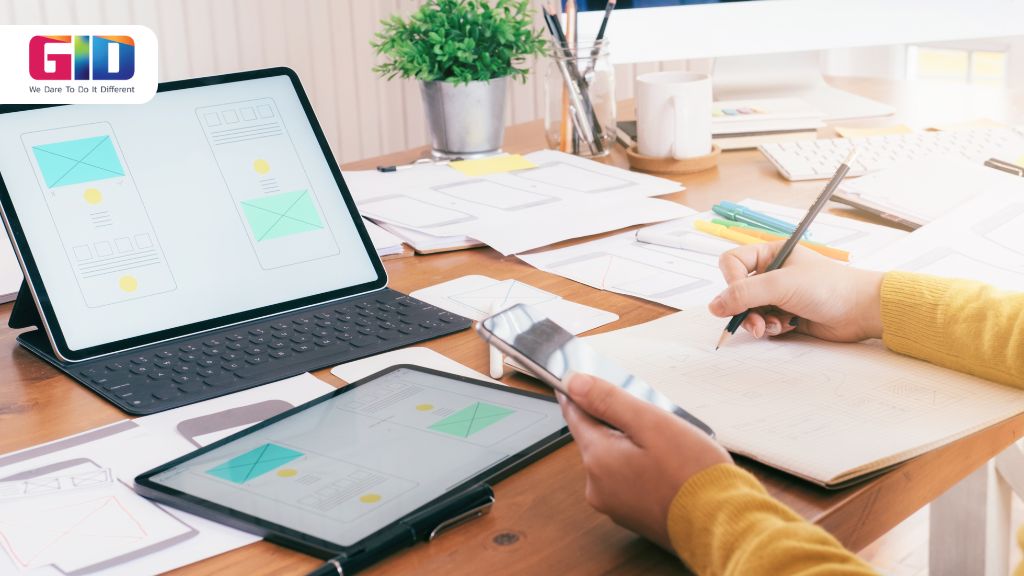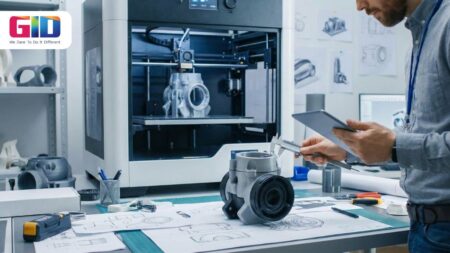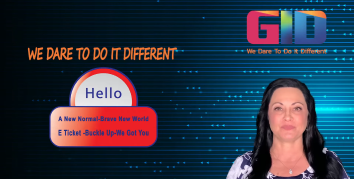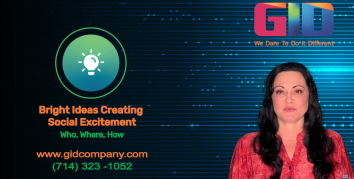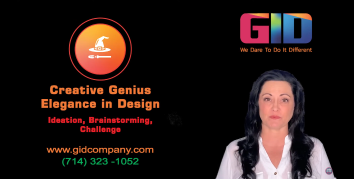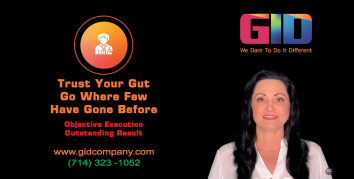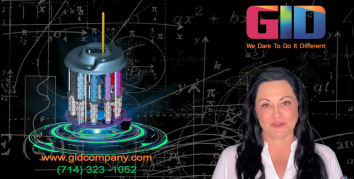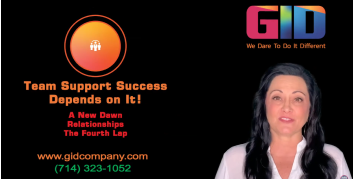Sustainable product design is no longer a niche ideal — it’s becoming the central strategy for companies aiming to thrive in U.S. markets. As climate concerns intensify and consumers demand accountability, brands in California, New York, Texas, and across the country must build true longevity and responsibility into their offerings. At GID Company, we believe that embedding sustainability from the very first sketches is essential to compete in the evolving American landscape.
In recent years, consumer expectations in metropolitan hubs like San Francisco, Chicago, and Miami have shifted dramatically. Ethical sourcing, end‑of‑life reuse, and minimal waste are no longer extras — they’re baseline demands. Simultaneously, state and federal policies are tightening rules around waste, emissions, and packaging. For innovators and manufacturers in the U.S., the path forward is clear: commit to sustainable product design or risk falling behind. GID Company stands ready to guide clients through that transition, aligning creative vision with ecological integrity and regulatory compliance.
Sustainable Product Design: The Core of Future Innovation
What “Sustainable Product Design” Means Today
In practice, sustainable product design involves viewing a product’s full lifecycle — from raw materials to disposal — and making choices that minimize negative environmental impact. It integrates ecological thinking into every decision: material sourcing, modularity, repairability, energy use, and disposal methods. This isn’t about gimmicks; it’s about fundamentally rethinking how a product exists in the world.
Why It Matters in the U.S. Context
In the U.S., demand for eco‑friendly goods has surged. Whether in California’s regulated marketplace, Florida’s tourism‑driven markets, or Texas’s industrial hubs, consumers and businesses alike expect higher accountability. A brand that merely advertises green labels without substance often loses credibility. That’s where eco-conscious product design becomes a competitive edge — it’s not just marketing, it’s tangible differentiation.
Business Benefits & Strategic Value
A reliable design built on sustainable product development principles yields less waste, lower long-term costs, and stronger brand loyalty. Early investment in the right materials, durability, and efficient manufacturing can reduce operating expenses down the line. Moreover, green product innovation helps firms anticipate regulatory shifts—such as extended producer responsibility laws—and stay ahead of compliance requirements. At GID Company, we help clients in U.S. states apply these principles from prototype to scale, ensuring sustainable product design choices deliver both performance and planet-friendly value.
Key Pillars of Sustainable Product Development
Sustainable product development is not a single action—it’s a strategic framework woven into every stage of bringing a product to life. From raw materials to assembly, and from packaging to end-of-life planning, the objective is to reduce negative environmental impact without sacrificing function or value. At GID Company, we apply a rigorous and tailored approach that transforms sustainability from an abstract ideal into a competitive business asset.
Lifecycle Thinking and Circular Design
Designing for the entire product lifecycle is the backbone of sustainable product design. It involves assessing the environmental footprint from inception through usage and eventual disposal. GID Company helps clients plan for durability, reuse, and recyclability at the conceptual stage. Circularity, which aims to eliminate waste through continuous product use cycles, becomes a guiding principle, ensuring the product has an extended value life.
Responsible Material Selection and Eco-Conscious Design
Selecting the right materials is a foundational decision in eco-conscious product design. Low-impact, renewable, or recycled materials not only reduce environmental burden but also support transparency in sourcing. GID Company evaluates the feasibility of sustainable materials for each client’s market and performance requirements, ensuring the product aligns with ethical values while still delivering strong commercial outcomes.
Durability, Modularity, and Repairability
Products that are built to last are inherently more sustainable. GID Company incorporates durable construction and modular design principles, enabling parts to be replaced or upgraded rather than discarded. These characteristics reduce the need for frequent replacements and support long-term value, key goals of sustainable product development and essential components of effective sustainable product design.
Low-Impact Manufacturing and Energy Efficiency
Manufacturing contributes significantly to a product’s carbon footprint. By optimizing production methods and selecting energy-efficient processes, GID Company minimizes resource consumption. Whether working with partners in California or production facilities across Texas, the focus remains on reducing waste, water usage, and emissions while maintaining precision and scalability.
Planning for End-of-Life Strategy
A critical, often overlooked component of sustainable product design is what happens after the product has served its purpose. GID Company works with clients to plan for disassembly, recyclability, or compostability. Embedding an end-of-life strategy reinforces the brand’s credibility and extends the utility of the initial investment, turning disposal into a responsible process.
Sustainable Packaging Design and Why It Matters
Sustainable packaging design is not simply about reducing waste—it’s about creating a packaging solution that supports the product, protects the environment, and strengthens the brand. As packaging is often the first tangible customer touchpoint, it plays a pivotal role in shaping perceptions. GID Company helps clients reimagine their packaging through innovation, compliance, and ecological responsibility.
The Environmental Impact of Traditional Packaging
Most traditional packaging materials—plastics, foams, and mixed laminates—are difficult to recycle and slow to degrade. In markets like California, New York, and Arizona, where regulatory restrictions are intensifying, these materials can even restrict market entry. Sustainable packaging design is no longer optional and is a critical element of sustainable product design. GID Company assists brands in replacing problematic materials with renewable, compostable, or recyclable alternatives that still meet logistical and safety demands.
Designing Packaging with Purpose and Minimal Waste
Every layer, adhesive, and print choice carries an environmental cost. Through green product innovation, GID Company minimizes unnecessary material use and promotes compact, lightweight packaging solutions. These designs reduce transportation emissions and storage costs while enhancing consumer experience.
Enhancing Sustainability through Smart Functionality
Sustainable packaging design can also deliver smart functionality. GID Company integrates QR codes, resealable elements, or refill-friendly formats, allowing customers to interact with packaging in ways that extend usability and reduce single-use disposal. These features not only improve user satisfaction but reinforce the brand’s commitment to eco-conscious product design, which plays an integral role in overall sustainable product design strategies.
Packaging Compliance and Brand Storytelling
In many U.S. states, packaging laws now require clear labeling, recyclability standards, and disclosures. GID Company ensures clients meet these legal standards while using the packaging as a storytelling platform. Thoughtful messages and informative designs educate consumers about the brand’s journey in sustainable product development, enhancing trust and loyalty.
Green Product Innovation: Trends Shaping U.S. Markets
Green product innovation is redefining how American companies approach product creation, from material selection to smart functionality. Driven by evolving regulations and rapidly shifting consumer behavior, brands across California, Texas, Georgia, and Florida are rethinking their value propositions through sustainable product design. At GID Company, green product innovation is not a trend we observe—it’s a practice we implement directly into each stage of product design and development.
Emerging Materials and Biocomposites
New materials like biodegradable polymers, plant-based plastics, and algae-derived textiles are making significant inroads. These innovations support both eco-conscious product design and regulatory compliance across multiple U.S. regions. GID Company evaluates these emerging materials not just for their sustainability benefits but also for feasibility in mass production and long-term durability. This allows us to guide clients toward choices that are both innovative and commercially viable.
Upcycling and Waste Repurposing
Upcycling—transforming waste materials into high-value products—has become a strong pillar of sustainable product development. By using waste from industrial, agricultural, or post-consumer sources, brands create unique offerings with a reduced environmental footprint. GID Company helps clients in diverse industries repurpose materials creatively, enhancing product identity and reducing dependency on virgin resources as part of a comprehensive sustainable product design approach.
Smart Features and Sustainable Functions
Innovation isn’t only about materials. Incorporating features like modular design, energy monitoring, or reusable systems into a product enhances both usability and sustainability. GID Company leverages smart design thinking to align green product innovation with consumer expectations in connected and tech-forward regions like California and New York. These features reinforce the commitment to sustainable product design while delivering added value to the end user.
Market Demand and Competitive Advantage
In highly competitive U.S. markets, green product innovation has become a differentiator. Consumers now seek transparency, ethical production, and eco-conscious product design across every product category. GID Company ensures that our clients not only meet but exceed these expectations through solutions that are both progressive and grounded in strategic foresight.
Overcoming Challenges in Eco-Conscious Product Design
While the momentum for sustainable product design continues to grow, the path to achieving it isn’t without obstacles. Challenges can arise in cost management, material sourcing, scalability, and certification. GID Company works alongside clients to solve these issues proactively, turning potential setbacks into scalable solutions.
Managing Initial Costs and Long-Term Savings
One of the common concerns in sustainable product development is upfront investment. Environmentally friendly materials and low-impact processes can seem expensive at the start. However, GID Company guides clients through a long-term view. Products designed with sustainability in mind often require fewer resources over time, reduce warranty claims, and boost consumer loyalty—ultimately yielding a higher return on investment.
Supply Chain Limitations
Access to reliable, sustainable materials can be inconsistent, particularly in less industrialized areas of the U.S. GID Company taps into a national network of vetted suppliers across California, Texas, and Georgia to ensure steady availability of components aligned with eco-conscious product design. Our relationships allow us to support clients with consistency, even when markets fluctuate.
Certification and Regulatory Navigation
Many companies struggle to interpret and comply with the patchwork of U.S. sustainability standards. From labeling regulations to compostability criteria, certification can be a major hurdle in sustainable packaging design and green product innovation. GID Company simplifies this process, helping clients choose materials and processes that align with both their goals and legal requirements across different states.
Consumer Education and Market Acceptance
Launching a product with sustainable features also means educating the end user. GID Company helps brands communicate the value of sustainable product design in authentic, accessible ways that resonate with today’s conscious consumers. Whether it’s highlighting sustainable packaging design on the label or demonstrating repairability through instructions, we build strategies that support both education and engagement.
How GID Company Works with You on Sustainable Product Design
At GID Company, sustainable product design is more than a deliverable—it’s the philosophy behind how we build future-ready innovations. Our process is collaborative, tailored, and aligned with environmental, market, and business objectives. Whether you’re in the early ideation phase or scaling production in Texas, Florida, or California, we integrate sustainability into every touchpoint of your development journey.
Strategic Planning and Sustainability Alignment
Our engagement begins with understanding your vision, goals, and target market. From there, we identify sustainability opportunities that support your brand while complying with regional expectations. This stage is crucial for ensuring the product meets green product innovation benchmarks without compromising usability or cost-efficiency. GID Company helps identify where sustainable product development can enhance value right from the outset.
Concept Development and Eco-Conscious Thinking
The ideation phase is where eco-conscious product design takes root. We explore different form factors, modular solutions, and responsible materials while maintaining your core functionality. At this stage, we ensure that choices around aesthetics, user experience, and environmental footprint align cohesively. GID Company also brings in material experts and engineering consultants to ensure each design concept supports sustainable product design principles.
Prototyping and Sustainable Material Testing
With concept approval, we move into prototyping using eco-friendly materials wherever viable. We evaluate material behavior, recyclability, and durability—all integral to effective sustainable product development. Our prototyping phase tests for real-world performance while ensuring the product remains viable for scale-up under the constraints of sustainable packaging design and lean manufacturing.
Manufacturing and Lifecycle Strategy
GID Company doesn’t stop at design; we work with U.S.-based manufacturing partners to ensure sustainable packaging design and energy-efficient production. Whether you’re producing in California, Arizona, or Georgia, we provide support to align operations with your sustainability targets. This includes selecting suppliers that meet ethical sourcing criteria and planning for product longevity and end-of-life processing in line with sustainable product design best practices.
Future Outlook: Why Sustainable Product Design Will Dominate U.S. Supply Chains
Sustainable product design is on track to become the new industry standard—not just a trend. As regulations tighten, and as consumers across the U.S. continue to favor ethical products, companies will need to adopt sustainable models to remain competitive. GID Company is at the forefront of this shift, guiding clients through innovation, design, and transformation with a clear sustainability focus.
Legislative and Policy Momentum
Government policies across states like California, New York, and Oregon are pushing stricter requirements on product lifecycle impact, packaging, and sourcing. GID Company helps businesses stay ahead of these changes by integrating sustainable product development from the very beginning. This proactive approach avoids costly redesigns and accelerates time-to-market.
Consumer Behavior and Market Shifts
The demand for environmentally responsible products is only increasing. Eco-conscious product design is influencing buying decisions across multiple sectors, from consumer electronics to home goods. Consumers now evaluate product integrity based not only on performance but also on its environmental footprint, making sustainable product design a key differentiator. GID Company equips brands to meet these expectations while maintaining competitive edge.
Industry-Wide Transformation
Across the U.S., supply chains are adapting to support green product innovation and low-impact operations. Manufacturers, distributors, and retailers are embracing materials and systems that reinforce sustainability. GID Company is uniquely positioned to help businesses integrate sustainable packaging design and eco-friendly engineering practices into every stage of the supply chain.
Preparing for a Sustainable Future
Embracing sustainable product design is not just about today—it’s a commitment to the future. As technologies evolve and markets become more sustainability-driven, companies that act now will have a lasting advantage. GID Company stands ready to help U.S. innovators build resilient, marketable, and environmentally responsible products that thrive in tomorrow’s economy.
Wrapping Up
Sustainable product design is not just shaping the future—it is defining it. Across the U.S., from California’s innovation hubs to Texas’s manufacturing centers and Florida’s consumer markets, businesses are recognizing that eco-responsible design is essential for growth and relevance. As environmental pressures increase and public awareness grows, building products that align with both ecological values and user expectations is a non-negotiable.
At GID Company, we don’t treat sustainable product development as an afterthought. We integrate it from day one, combining technical expertise, market understanding, and green product innovation to help you create more than just a product—we help you build a legacy. From initial concepts to sustainable packaging design and beyond, our process ensures your brand meets market demand while staying aligned with evolving regulations and ethical production standards.
By committing to eco-conscious product design, you’re not only reducing waste and improving environmental impact—you’re positioning your business as a responsible leader in a new era of American innovation. GID Company is here to make that journey seamless, scalable, and successful.

